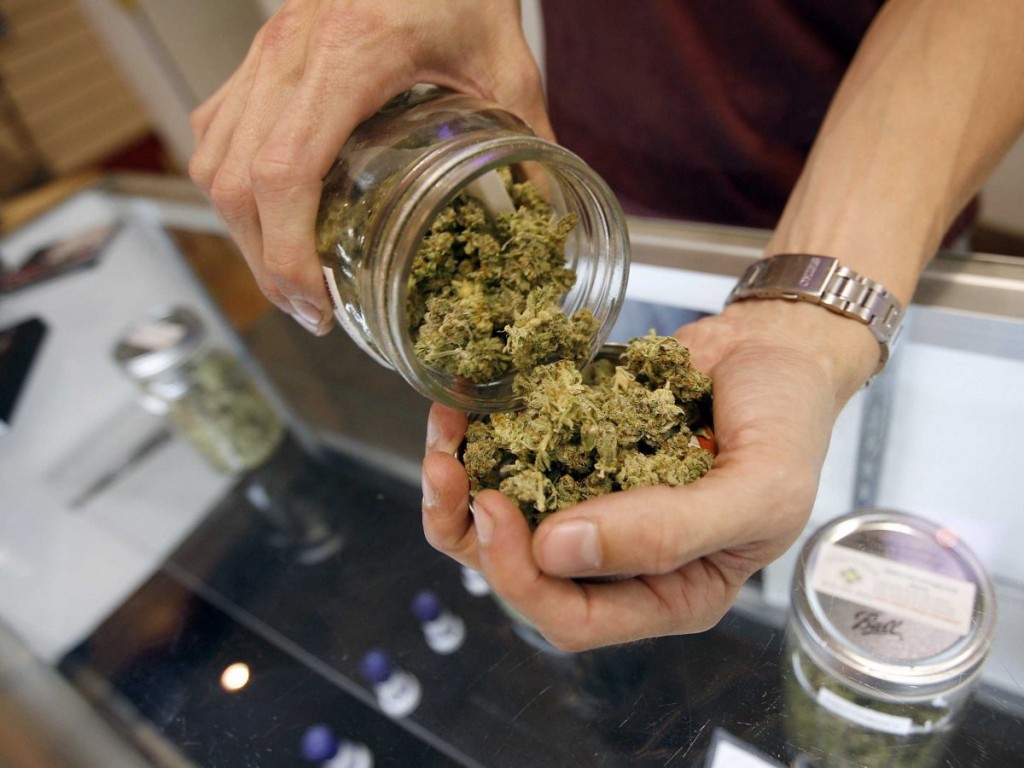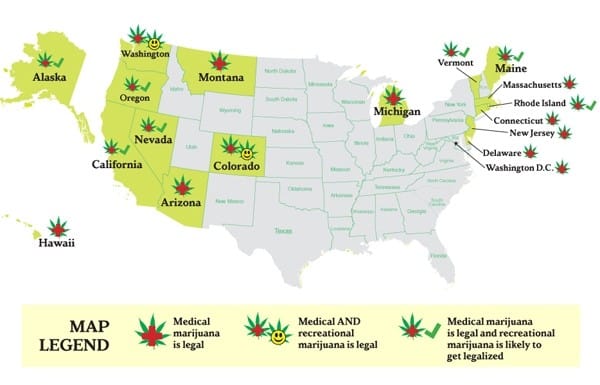On Dec. 5, 2012, state-wide Washington marijuana users waited for the clock to strike midnight when Initiative 502 would go into effect. The very same celebration and anticipation repeated itself on Jan. 5, 2013 in Colorado with Amendment 64. Both laws decriminalize and permit the recreational use of cannabis and allow adults 21 and older to carry only an ounce or less and up to six plants in one home.
This historical and progressive move was a victory for pro-marijuana groups and users. However, cannabis usage is still considered illegal on a federal level. But 18 states, including both Colorado and Washington see differently and have allowed medical marijuana to provide an alternative to medications that failed patients and marijuana seemed to be a medicine that alleviates most ailments.
“Medical cannabis and cannabis in general are two totally different monsters,” says Todd R., owner of Washington’s Healthy Living Center. “Because we do deal with very ill people, our main focus and concern is the patient and being legal under state law so that we were protected under it.” Todd R. asserts that his business is different from a dispensary approach and that he has turned away queries of probable recreational users. Todd R. isn’t the only co-op owner to be concerned about marijuana distribution as several other dispensaries have followed suit to deter recreational sales.
Robert Allen with the Fort Collins Coloradoan reports that there has been a vast misunderstanding about Colorado’s Amendment 64 with pot users assuming that the law will allow dispensaries to sell marijuana to just anyone. In reality, a person must be considered a patient and possess a medical state appointed red-card to be allowed to purchase cannabis, and Colorado state law declares that although it can be grown, possessed, and passed on without compensation it is still illegal to sell.
“We don’t take any patient that hasn’t come from a doctor,” Todd R. says in regards to medical usage. “We don’t cater to the general public and if we ever decide to, it will be under a different business model.” However, with commercialized sales prohibited in both states until late 2013 and sometime in 2014, Craigslist and other sites advertise non-medical marijuana, bypassing the red-card mandate which is considered a felony in both Colorado and Washington.

But, according to the New York Times Senior White and Justice Department officials are attempting to move forward to place legal action against both Colorado and Washington. The probable sueing of both states will undermine and override voter-approved initiates so that federal law will prevail over state regulated approval. Currently, 8 former Drug Enforcement Administration chiefs declare that the government needs to act immediately in order to refute both Colorado’s and Washington’s laws or else they will be unable to cease future distribution.
According to CBS News, U.S. State Attorney General Eric Holder declares that the Department of Justice is still reviewing the legalization laws and is intending to speak at a U.S. Senate Judiciary committee hearing in March.
To further complicate matters, there is a growing concern that marijuana taxation might encourage black market sales as medical marijuana is taxed but not at the same rate as recreational cannabis. Time Magazine suggests that a way to avoid this would be to tax all pot products the same and permit medical users to file for a refund.
Obama’s relaxed stance upon the issue has caused many to call his administration into question and while the mandate on legalizing pot remains in limbo, Colorado and Washington have enabled task forces for both laws which conduct a series of guidelines and rules for recreational cannabis. They will include everything from prohibition of marijuana use in public to a comprehensive tracking system from production to sales.
[sdonations]2[/sdonations]


